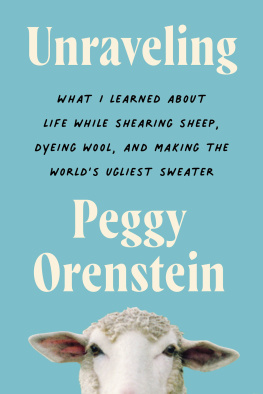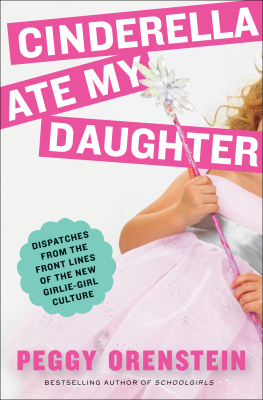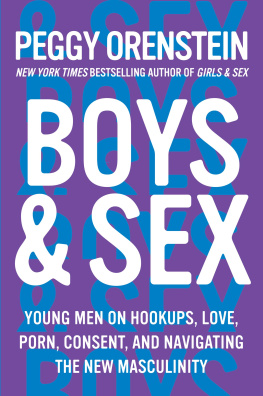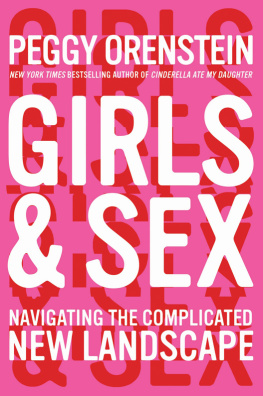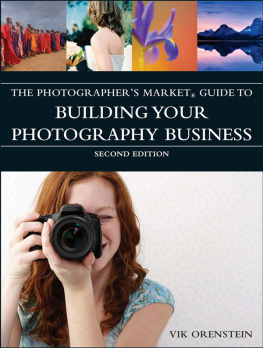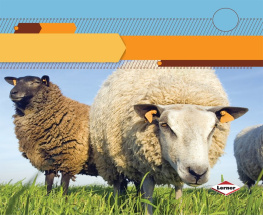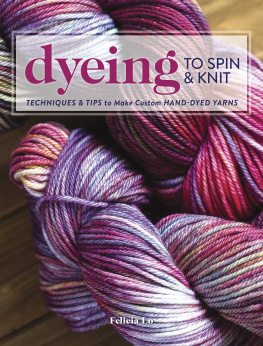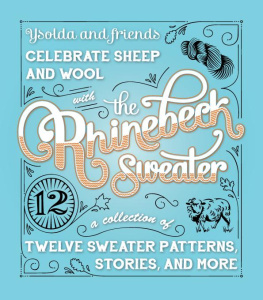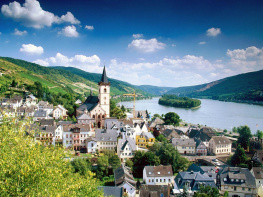It may be that when we no longer know what to do we have come to our real work.
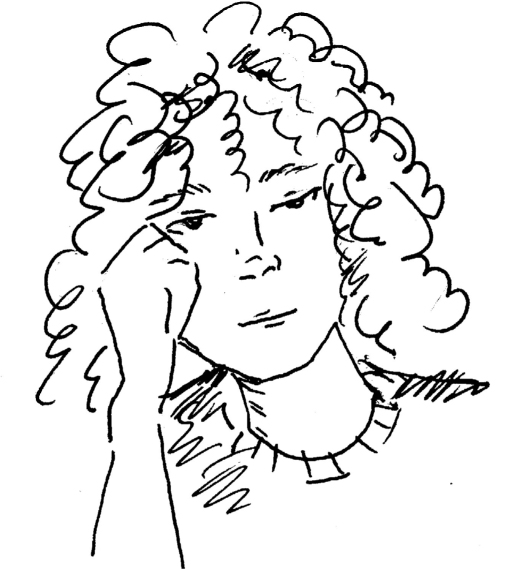
SHEEP DONT LOOK LIKE THEYD BE slippery. It turns out, though, that they secrete a waxy substance called lanolin that weatherproofs their fleeceits the same stuff thats in a lot of cosmetics, moisturizers, lip balms, and in the ointment nursing moms slather on cracked nipples. That means that when you try to hang on to one, it slides. The ewe currently wedged belly-up against my legs is no exception: weighing in at around one hundred forty pounds, she is wriggling like a greased-up toddler. A greased-up toddler with hooves. Did I mention that Im holding a rapidly whirring electric clipper in my right hand? Its blades, which have no safety guard, are sharp enough to sever my finger, or, maybe worse, slice open a major artery on the animal. My arms are glistening with sweat from wrestling the sheep into position, my back already aches, and my Covid mask is stifling me. Learning to shear sheep during the pandemic seemed like a bit of a larka way to tap into the romance and resilience of an earlier age; to connect with something enduring when life had become so precarious; to better understand, as a lifelong knitter, where my fiber came from; to get out of my house. Why the hell couldnt I have stuck to sourdough? I think to myself as I look down at the giant ball of wool beneath me, raise my hand, grit my teeth, and prepare to plunge in.
* * *
THIS WAS CERTAINLY NOT where I imagined myself at the beginning of 2020. In early January I published a book on boys, masculinity, and sexuality, a follow-up to one Id written about girls. I was on a national tour in a different city every day, doing media spots, meeting hundreds of people at book signings, lining up a roster of speaking engagements for the upcoming spring and fall. The pace was exhausting, exhilarating: Id worked for decades to get here, to have this platform, this reach, to feel like my ideas were making an impact. In the midst of it all, a friend back in California texted me an emoji, the one that looks like the face in Edvard Munchs The Scream, along with the words Covid-19!
I had no idea what she was referring to.
A couple of months later, things had changed. On March 9, a Monday, I dropped my sixteen-year-old daughter, Daisy, off at high school in Berkeley, then headed to the airport: I was supposed to give three talks in Los Angeles over the next couple of daysat a preschool, a high school, and a collegethen fly to New York for a network TV appearance. Ever the modern working mom, I had organized the trip to be home in time for Daisys swim meet on Friday. But I was growing increasingly uneasy, thinking about all the people who would have touched the airplanes seats, tray tables, and armrests (this was when we still believed Covid was transmitted through physical contact). I thought about the myriad surfaces in the hotel rooms; the restaurants where cooks and servers would touch my food, plates, cups, flatware, the pen theyd give me to sign the check. I thought about everyone whod want to shake my hand at the events, or hug, or ask me to autograph a book theyd been holding with their bare fingers.
All of these thingsthings I normally wouldnt have noticed, some that I actively enjoyedmade my breath come short and my chest tighten. Even as I tried to convince myself that it was fine, that I was being ridiculous, I pulled off the freeway to turn around. My plane was leaving in less than two hours. I would not be on it. But well have hand sanitizer at the event! one host wailed when I phoned in my apologies.
We all know what happened next. Within forty-eight hours, the students at the college I was booked at were sent home. By Thursday, Daisys swim meet was called off, as was that weekends SAT (it would be canceled six more times in the coming months; she never did use those number two pencils). Within a week, the high school had shut down; it wasnt clear how or whether classes for its thirty-four hundred studentsmany of whom had no computer at home and some of whom did not have a home at allwould continue. It felt like we were falling backward in slow motion, arms and legs flailing for purchase.
What did you do when life came to a terrifying, screeching halt? Me, I read the news incessantly, then avoided reading the news entirely: rinse and repeat for weeks, then months. I fixated on the New York Times Spelling Bee, discovering the hidden, secret designation of Queen Bee for those who get all the possible words. I scrolled and kibitzed on social media. I told dear friends, in soulful Zoom sessions, that I loved them (often while accidentally on mute), feeling simultaneously deeply connected and deeply disconnected. I made a list of Great Books for Daisy to read in case school never resumed (she balked). I gave it up and lifted all restrictions on her device use, the ones that were supposed to keep her from becoming a slave to the algorithm. I let her become a slave to the algorithm. I became a slave to the algorithm.
I washed groceries, sealed mail in Ziplocs, nagged everyone to scrub their handsyes, again!sanitized my own red and raw. I refused to buy extra toilet paper; I bought extra toilet paper; I felt ashamed for buying extra toilet paper. I made myself cry picturing my husband, Steven, dying of Covid: he is over sixty-five and was not as scrupulously careful as I would have liked if he would only have let me be in total control. I drew up a list of all my passwords and wishes in case I died of Covid. I recalled a self-defense skills class Id taken with Daisy when she was in kindergarten in which both the kids and the parents were encouraged to stay safe in your imagination; I did not stay safe in my imagination. I dont know anyone who was able to stay safe in their imaginations, except maybe Steven, who always says there is no point fretting over something that might never happen.
There was another layer of worrymore of existential angstthat had been building for me before the pandemic, but my perpetual motion and the vagaries of daily life had allowed me to avoid dwelling on it. I was getting older, a lot closer to sixty than fifty (okay, okay, I was fifty-eight). Steven, a documentary filmmaker, was talking about retirementretirement!or only taking on work that genuinely excited him, which amounted to the same thing. Daisy would be leaving for college in a year, ending the most intensive time of parenting and taking a chunk of my identity with her. Who would I be once she was gone? Watching from the kitchen as she sat at the dining room table doing research on colleges, I remembered the three-year-old in red sneakers, her hair in two spouts on top of her head, who would peek around the doorway wanting to play pretend. Look at this, a little child! I was supposed to say in mock surprise. Are you all alone? Can I be your mama? It was a bit she wanted me to repeat over and over until I was exasperatedand why was I so exasperated, why didnt I play as long as she would want?
I wasnt ready. Not for any of it. There are libraries of books for women on balancing work and motherhoodI wrote one myself!as if that is the entirety of our existence. This next phase? Its like dropping off a cliff. Yet another cliff. We are not a culture, to say the least, that venerates older womenthe sheer amount of age-forfending plastic surgery we engage in (not blaming, just noting) is testament to that. When someone wrote in the

